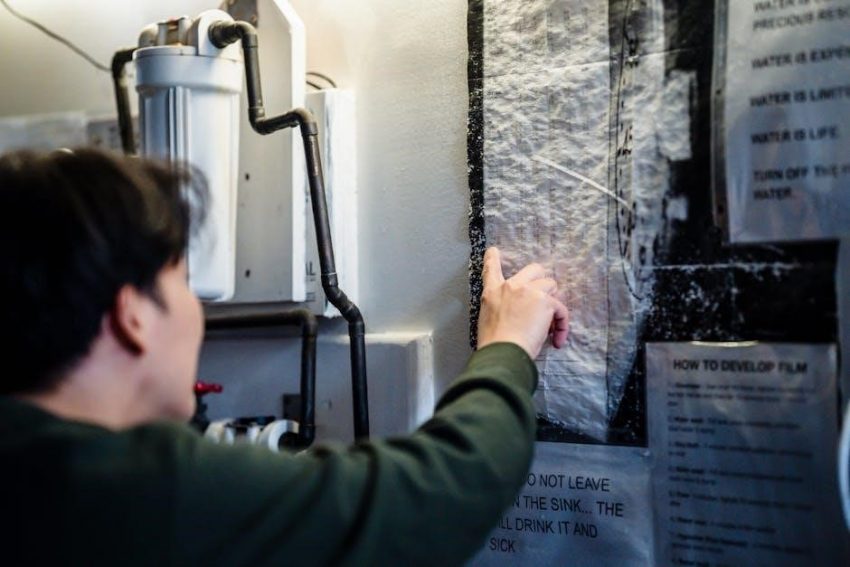Overview of the NJ CBT-100 Instructions for 2022
The 2022 NJ CBT-100 instructions guide businesses through filing the Corporation Business Tax return. Key topics include electronic filing mandates, payment options, and required documentation for accurate submissions.
The New Jersey Corporation Business Tax (CBT) applies to corporations operating in the state. It is calculated based on net income and includes both domestic and foreign corporations. The CBT-100 form is used to report taxable income, with specific instructions provided for accurate filing. This tax ensures businesses contribute to state revenue, adhering to New Jersey’s tax regulations and requirements.
1.2 Key Changes in the 2022 Filing Requirements
The 2022 NJ CBT-100 instructions introduced mandatory electronic filing for all corporations and tax preparers. Enhanced payment options, including online estimated tax payments, were added. Additionally, updated documentation requirements and form revisions ensured compliance with new tax regulations. These changes streamlined the filing process, improved accuracy, and aligned with modern tax administration standards, reducing errors and ensuring timely submissions for the 2022 tax year.

General Instructions for Completing the CBT-100 Form
Complete the CBT-100 form by gathering necessary documents, understanding each section, and ensuring all information is accurate. Follow provided instructions carefully to avoid errors.
2.1 Who Must File the CBT-100
Corporations, including domestic and foreign entities conducting business in New Jersey, must file the CBT-100. This includes those with nexus in the state, regardless of tax-exempt status or profitability. S corporations and certain partnerships may also need to submit specific forms, such as the CBT-100S, depending on their business structure and activities within the state.
2.2 Required Documentation and Forms
When filing the CBT-100, corporations must include various supporting documents such as federal tax returns, financial statements, and schedules. Additional forms like the CBT-100S for foreign corporations or specific attachments for tax credits and deductions may also be required. Accurate and complete documentation ensures compliance with New Jersey tax regulations and avoids processing delays or penalties.

Electronic Filing Mandate for 2022
The 2022 NJ CBT-100 requires mandatory electronic filing for all corporations and tax preparers. This ensures efficient processing and reduces errors, aligning with modern tax compliance standards.
3.1 Mandatory Electronic Filing for Corporations
All corporations and tax preparers must file the CBT-100 electronically for 2022. This mandate streamlines the process, reduces errors, and ensures compliance with state tax regulations. Electronic filing is required regardless of the corporation’s size or tax liability, promoting efficiency and accuracy in tax submissions to the New Jersey Division of Taxation.
3.2 How to File the CBT-100 Electronically
To file the CBT-100 electronically, corporations must create an account on the New Jersey Division of Taxation’s online portal. Submit the completed form along with required schedules and attachments. Payments can be made using CBT-100-V. Ensure all information is accurate and verify submission confirmation. Electronic filing is mandatory and streamlines the process, reducing errors and ensuring compliance with state tax regulations.

Payment Options and Deadlines
Corporations can pay via E-Check or ACH. Deadline for filing and payment is April 15th. Late submissions incur penalties and interest, ensuring timely compliance is crucial.
4.1 Payment Methods for CBT-100
Corporations can pay using E-Check, ACH, or paper check. Electronic payments are preferred for faster processing. Payments can be made online through the NJ Division of Taxation portal. For paper filings, checks must be payable to Treasurer, State of New Jersey and mailed with the return. Ensure payments are timely to avoid penalties and interest.
4.2 Deadline for Filing and Payment
The CBT-100 return and payment must be submitted by April 15, 2023 for calendar-year corporations. Fiscal-year filers must submit by the 15th day of the 4th month after their tax year ends. Late filing or payment incurs penalties and interest. Extensions may be requested, but payment is due by the original deadline to avoid additional charges. Timely submission ensures compliance with NJ tax regulations.

Filing Requirements for Foreign Corporations
Foreign corporations operating in New Jersey must file Form CBT-100. They must report income earned within the state and claim applicable credits as per specific instructions.
5.1 Filing Requirements for Foreign Corporations in New Jersey
Foreign corporations conducting business in New Jersey must file Form CBT-100. They must report income derived from New Jersey operations and comply with specific state tax regulations. Additionally, foreign corporations may need to file Form CBT-100S if they are part of a partnership doing business in the state. Certain entities may require certification of inactivity, as outlined in the instructions.
5.2 Specific Instructions for Form CBT-100S
Form CBT-100S is required for foreign corporations operating in New Jersey through partnerships. It allows these entities to claim taxes paid on their behalf by the partnership. Specific instructions detail reporting requirements, ensuring compliance with state tax laws. Foreign corporations must adhere to these guidelines to accurately reflect their tax obligations in New Jersey and avoid potential penalties or delays in processing.

Schedules and Attachments
The CBT-100 requires specific schedules and attachments to ensure accurate reporting. These include Schedule A for income adjustments and supporting documents for deductions and credits claimed.
6.1 Required Schedules for the CBT-100
The CBT-100 requires several schedules to detail specific aspects of a corporation’s tax situation. Schedule A is used for adjusting income, while Schedule B details non-operating income. Other schedules may include those for dividends, capital gains, and additional information. Each schedule must be completed accurately and attached to the main form to ensure compliance with New Jersey tax regulations.
6.2 Additional Attachments and Supporting Documents
Besides the required schedules, corporations must attach various supporting documents to the CBT-100. These include federal tax returns, consolidated statements, and any relevant receipts or invoices. Additionally, documents proving tax credits or deductions must be included. Failure to provide these attachments may result in processing delays or penalties, emphasizing the importance of thorough preparation and compliance with all specified requirements.

Calculating Tax Liability
Understanding tax rates and adjustments is crucial for accurate calculations. Ensure all applicable reductions are applied to avoid penalties and ensure compliance with state regulations.
7.1 Understanding Tax Rates and Calculations
Understanding tax rates and calculations is essential for determining accurate liability. Corporations must apply the standard tax rate to taxable income, with surtaxes potentially applying based on income thresholds. Adjustments to taxable income, such as deductions and credits, must be properly accounted for to ensure compliance and avoid penalties. Always refer to official 2022 instructions for specific calculations.
7.2 Adjustments to Taxable Income
Adjustments to taxable income involve modifying gross income by specific deductions and exclusions. Corporations may deduct dividends received, net operating losses, and certain depreciation adjustments. These adjustments aim to accurately reflect taxable income, ensuring compliance with tax regulations. Proper documentation and adherence to 2022 CBT-100 instructions are crucial to avoid errors or penalties. Always review applicable adjustments carefully before filing.

Credits and Deductions
8.2 Claiming Deductions on the CBT-100
Corporations can claim deductions for dividends received, depreciation adjustments, and net operating losses. Proper documentation and adherence to 2022 CBT-100 instructions ensure accurate deduction claims and compliance.
8.1 Available Tax Credits for 2022
For 2022, corporations may claim credits like Research and Development Tax Credit, Historic Preservation Tax Credit, and Brownfield Redevelopment Credit. These credits reduce tax liability. Eligibility varies, with specific documentation and forms required. Credits are subject to carryforward and recapture rules, ensuring compliance with New Jersey tax regulations. Review the 2022 CBT-100 instructions for detailed eligibility criteria and claim procedures.
Corporations can claim deductions for net operating losses, interest expenses, and certain federal tax deductions. Specific rules apply for depreciation, amortization, and bad debts. The 2022 instructions outline eligible deductions and restrictions. Ensure all deductions are properly documented and comply with New Jersey tax regulations to avoid adjustments. Refer to the CBT-100 instructions for detailed guidance on claiming deductions accurately.
Penalties and Interest
Late filing penalties apply to unpaid taxes, with interest accruing on balances. A $100 penalty may apply for late filing after January 31, 2023.
9.1 Late Filing and Payment Penalties
Late filing and payment penalties apply to unpaid taxes. A $100 penalty is imposed for late filing after January 31, 2023. Interest accrues on unpaid balances at a rate of 3.146% annually, calculated monthly from the original due date. Additional penalties, including a failure-to-file penalty of $100 and a negligence penalty of 5% to 25%, may apply for underpayment or noncompliance.
9.2 Interest on Unpaid Tax Balances
Interest accrues on unpaid tax balances at an annual rate of 3.146%, calculated monthly from the original due date. If the balance remains unpaid, interest compounds monthly until the full amount is paid. A minimum interest charge of $10 applies to unpaid balances. Interest is applied to the principal tax liability, penalties, and any previously accrued interest, ensuring compliance with state tax regulations.
Extensions and Amended Returns
Extensions and amended returns for the NJ CBT-100 must be filed electronically. Use Form CBT-200-T for extensions and follow specific instructions for amended returns.
10.1 How to Request an Extension
To request an extension for filing the NJ CBT-100, use Form CBT-200-T. File electronically by the original due date. Payment must accompany the extension request. An automatic six-month extension is granted for filing, but not for payment. Extensions are available via the New Jersey Division of Taxation’s online portal. Forms and instructions are accessible on the official NJ tax website. Penalties may apply for late payments.
10.2 Filing an Amended CBT-100 Return
Amend a CBT-100 by filing Form CBT-100 with the “Amended Return” box checked. Include updated information and explanations for changes. Submit electronically or mail to the Division of Taxation. Attach supporting documents if necessary. Amended returns must be filed within three years of the original due date or filing date, whichever is later. Ensure accuracy to avoid delays or penalties in processing. Follow the latest NJ tax guidelines for proper submission.

